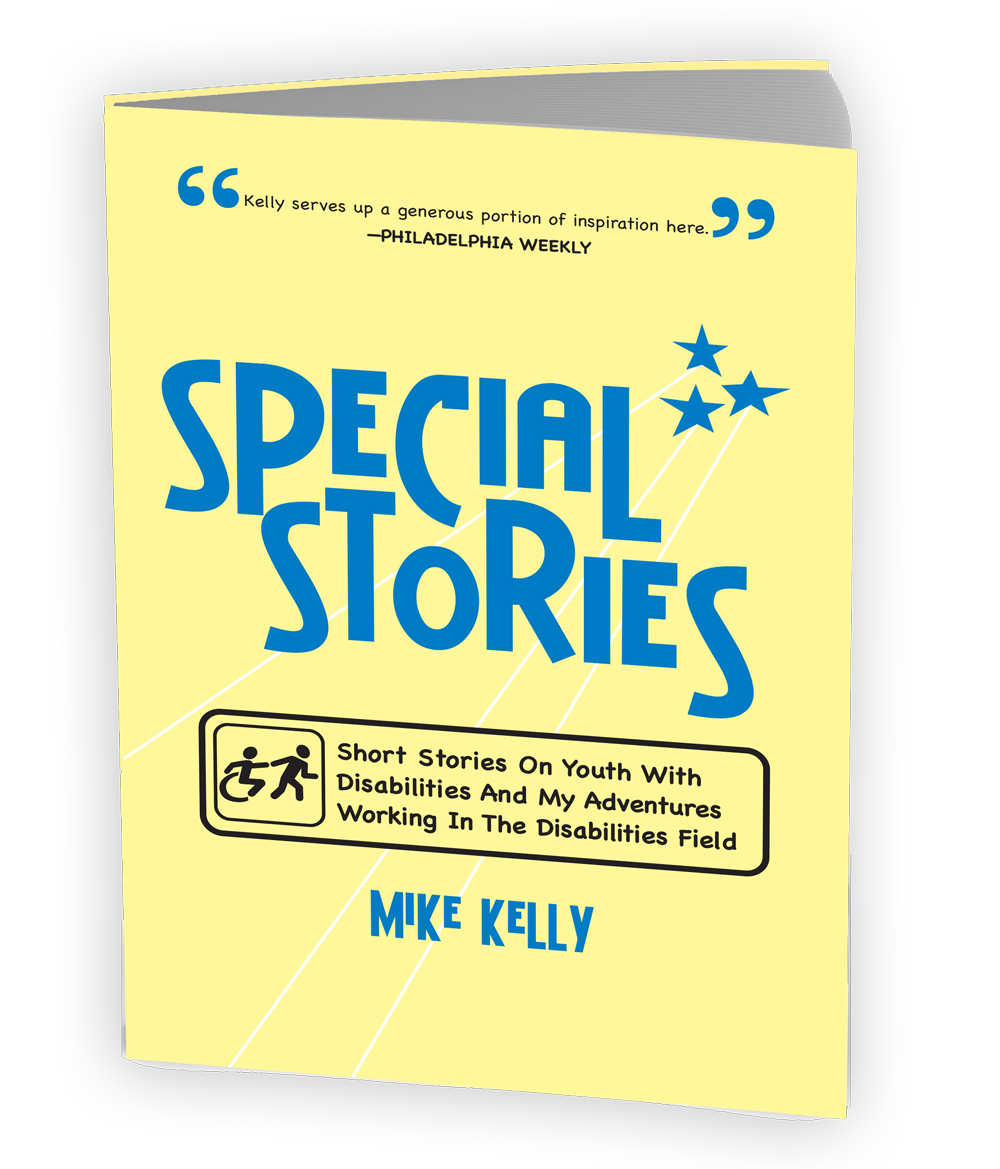Book On Children With Disabilities- Even In The Age Of Disabilities Enlightenment, There Are Still Those Who Remain In The Dark
As a society we’ve come a long way since the Americans with Disabilities Act was enacted in 1990. Yet even in this age of disabilities enlightenment, there are still many who remain in the dark when it comes to society recognizing the abilities individuals with disabilities have. As someone who has served hundreds of youth with a wide range of challenges over the last fifteen years, part of my responsibility has been to bring people out of that darkness and into the light. I have to say, it’s not always been easy.
Too often employers are afraid to hire kids with disabilities because they view them as liabilities. Many hiring managers and business owners believe that if they do hire kids with challenges, those kids will either hit a customer, shriek uncontrollably or make other loud noises, grope an employee, stand in the corner and pick their nose, break expensive equipment, or bang their head against the wall. And none of those things would be good for business. Believe it or not, I’ve actually been told this—off the record, of course—by several corporate managers over the years. And employers fear if they hire individuals with disabilities, there’s no way they would be able to fire them if things didn’t work out. They fear they’d be sued and forced out of business. This is the mindset of many hiring managers. It’s a lot easier for them just to say that there’s no position available. (Even though a sign may hang in the window that says, “Now Hiring All Positions.”)
While most companies claim they’re an inclusive EOE company and support having a diverse work force that includes individuals with disabilities, my thousands of accumulated rejections over the years—having worked in several states across the country—and my experiences tells me otherwise.
In my everyday travels meeting with corporate business managers and owners, I try my best to let each person know that all of my students have areas of strengths that can be nurtured and developed. All they need is an opportunity and that I’d never place someone in a job if I thought that person would cause injury to himself or herself, someone else, or property of the business. That’s not how I roll. And in the rare instance when a student doesn’t fit well into their job, I’m always the first person to pull the plug—way before management or ownership needs to. That way, the employer never has to worry about having to fire a kid with a disability.
Here’s a recent example of the mindset of just one hiring manager, but is representative of a larger group of hiring managers I’ve encountered with similar views.
While out job developing on behalf of a student one day, my work brought me to a large toy store chain. I met with the manager of the store, a male about thirty, and asked him if there were any available part-time jobs stocking, shelving, receiving, or on the floor as a sales assistant. If there were, I had the perfect candidate—my student.
A brief conversation ensued, after which the manager looked at me with a quizzical expression and said there might be a position available. He then asked me to tell him a little about my student. I said that she was seventeen and a great young lady with a fantastic personality. She was smart, polite, hardworking, and she recently had a successful job sampling in a retail environment similar to his business. I then provided her resume and references to him. He viewed it, and with his thumb and index finger plucking at the long brown hairs on his goatee, he mustered a burst of lucidity, his face lighting up, and then he asked me if I was her job coach.
I said, “Yes,” I was, and thought, OK, he gets it. I was certain my student was a shoe-in for the job, doing exactly what she wanted to do—work in a toy store. That was until he matter-of-factly said, “Yeah, we already got one of them working here now. We don’t need another one.”
[The sound of a needle scratching a vinyl record]
I paused for a moment and processed what he’d said before I responded “Whoa!” My eyebrows raised, my eyes widened, and I stared at him with openmouthed amazement. “Excuse me?” I said.
Clueless and thinking I didn’t hear him he responded, “We already got a handicapped person working here a few days a week. We don’t need another one.”
Dumbfounded by his ignorance, I shot back, “My man, that’s soooo wrong what you just said.” He stared blankly at me for a moment, his expression conveying a total lack of comprehension. I took the time to explain, and then left.
Could you ever imagine him saying that about any other type of person? “Oh, yeah, we already have a black/Hispanic/woman/gay/Muslim/Jewish/Asian … person working here now. We don’t need another one.”
Yeah, neither can I.
This and many other similar comments I’ve received over the years are proof that we still have a long way to go before comments like this won’t be made in future encounters.
For more information on youth with disabilities or to read more stories, visit www.specialstoriesbook.com to learn about the new book, “Special Stories: Short Stories On Youth With Disabilities And My Adventures Working In The Disabilities Field” by Mike Kelly (2017, Vendue Books)
https://www.specialstoriesbook.com/buy-book/

